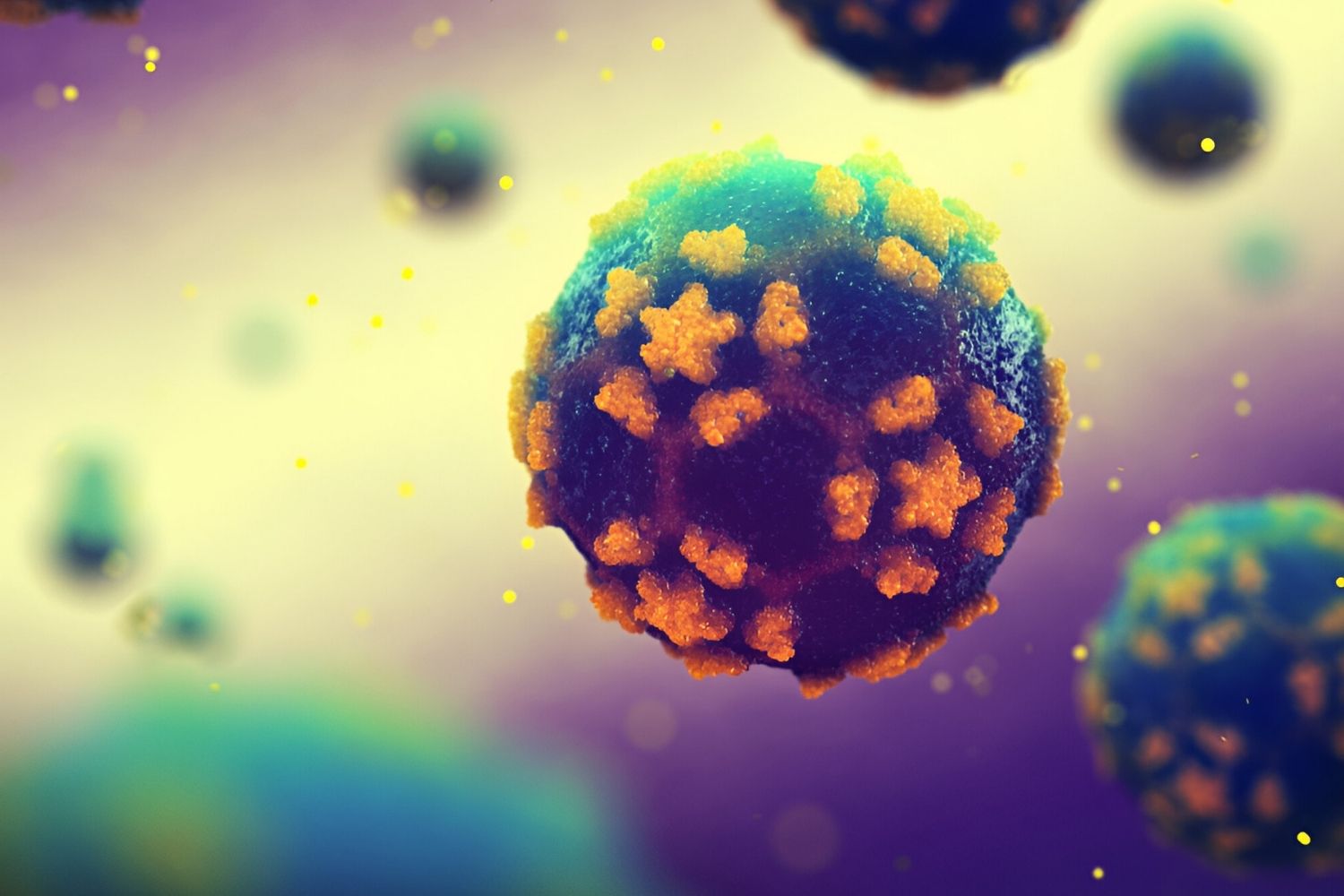
Echovirus infection is a common viral illness that can affect anyone, but it often targets children. These viruses belong to the Enterovirus group, which also includes polioviruses and coxsackieviruses. Symptoms can range from mild, like a common cold, to severe, such as viral meningitis. Transmission happens through contact with an infected person's feces or respiratory secretions. Good hygiene practices, like regular handwashing, can help prevent the spread. Diagnosis usually involves lab tests on throat swabs, stool samples, or cerebrospinal fluid. Treatment focuses on relieving symptoms since there's no specific antiviral medication. Understanding echovirus infection is crucial for protecting yourself and your loved ones.
Key Takeaways:
- Echovirus is a contagious virus that can cause symptoms like fever, sore throat, and diarrhea. It spreads through fecal-oral route, respiratory droplets, and close contact, so good hygiene and avoiding infected individuals are important for prevention.
- Infants, young children, and people with weakened immune systems are at higher risk of echovirus infection. While there's no specific treatment, supportive care, such as hydration and over-the-counter medications, can help alleviate symptoms.
What is Echovirus?
Echovirus is a type of enterovirus that primarily affects the gastrointestinal tract but can also cause a variety of other symptoms. These viruses are common and can lead to a range of illnesses, from mild colds to more severe conditions.
- Echovirus belongs to the Picornaviridae family, which includes other viruses like poliovirus and rhinovirus.
- The name "Echovirus" stands for "Enteric Cytopathic Human Orphan" virus.
- Echoviruses are non-enveloped, meaning they lack a lipid membrane, making them more resistant to disinfectants.
How is Echovirus Transmitted?
Understanding how echovirus spreads can help in preventing infections. These viruses are highly contagious and can be transmitted in several ways.
- Echovirus spreads primarily through the fecal-oral route.
- It can also be transmitted via respiratory droplets when an infected person coughs or sneezes.
- Contaminated water and food are common sources of echovirus outbreaks.
- Close contact with an infected person, such as shaking hands, can also transmit the virus.
Symptoms of Echovirus Infection
Echovirus infections can manifest in various ways, depending on the individual's age, immune status, and the specific strain of the virus.
- Common symptoms include fever, sore throat, and headache.
- Gastrointestinal symptoms like nausea, vomiting, and diarrhea are also frequent.
- In some cases, echovirus can cause a rash, particularly in children.
- Severe cases may lead to viral meningitis, an inflammation of the membranes covering the brain and spinal cord.
- Echovirus can also cause myocarditis, an inflammation of the heart muscle.
Who is at Risk?
Certain groups of people are more susceptible to echovirus infections. Knowing who is at risk can help in taking preventive measures.
- Infants and young children are at higher risk due to their developing immune systems.
- People with weakened immune systems, such as those undergoing chemotherapy, are also more vulnerable.
- Individuals living in crowded conditions, like dormitories or military barracks, have a higher risk of infection.
- Healthcare workers are at increased risk due to their exposure to infected patients.
Diagnosis and Treatment
Diagnosing echovirus infection involves specific tests, and while there's no specific treatment, supportive care can alleviate symptoms.
- Diagnosis is usually confirmed through stool samples or throat swabs tested for the virus.
- Blood tests can also detect antibodies against echovirus.
- There is no antiviral treatment specifically for echovirus; care focuses on relieving symptoms.
- Over-the-counter medications can help reduce fever and pain.
- Hydration is crucial, especially if gastrointestinal symptoms are present.
Prevention Strategies
Preventing echovirus infection involves good hygiene practices and other preventive measures.
- Frequent handwashing with soap and water is essential.
- Avoiding close contact with infected individuals can reduce the risk of transmission.
- Disinfecting surfaces, especially in communal areas, helps prevent the spread of the virus.
- Proper food handling and cooking can minimize the risk of contamination.
- Vaccines are not available for echovirus, making preventive measures even more critical.
Complications of Echovirus Infection
While many echovirus infections are mild, complications can arise, particularly in vulnerable populations.
- Viral meningitis caused by echovirus can lead to severe headaches, neck stiffness, and sensitivity to light.
- Myocarditis can result in chest pain, shortness of breath, and fatigue.
- In rare cases, echovirus can cause encephalitis, an inflammation of the brain, leading to seizures and neurological damage.
- Chronic infections can occur in individuals with compromised immune systems, requiring prolonged medical care.
Final Thoughts on Echovirus Infection
Echovirus infection, often overlooked, can cause serious health issues. Understanding its symptoms, transmission, and prevention is crucial. This virus spreads mainly through contact with contaminated surfaces or bodily fluids. Symptoms range from mild fever to severe conditions like meningitis. Good hygiene practices, such as regular handwashing and avoiding close contact with infected individuals, can help prevent its spread.
Vaccines for echovirus don't exist yet, so staying informed and cautious is key. If you suspect an infection, seek medical advice promptly. Early diagnosis and supportive care can make a significant difference in recovery.
By staying vigilant and practicing good hygiene, you can protect yourself and others from this potentially harmful virus. Knowledge is power, and now you're better equipped to handle echovirus infection. Stay safe and healthy!
Frequently Asked Questions
Was this page helpful?
Our commitment to delivering trustworthy and engaging content is at the heart of what we do. Each fact on our site is contributed by real users like you, bringing a wealth of diverse insights and information. To ensure the highest standards of accuracy and reliability, our dedicated editors meticulously review each submission. This process guarantees that the facts we share are not only fascinating but also credible. Trust in our commitment to quality and authenticity as you explore and learn with us.
